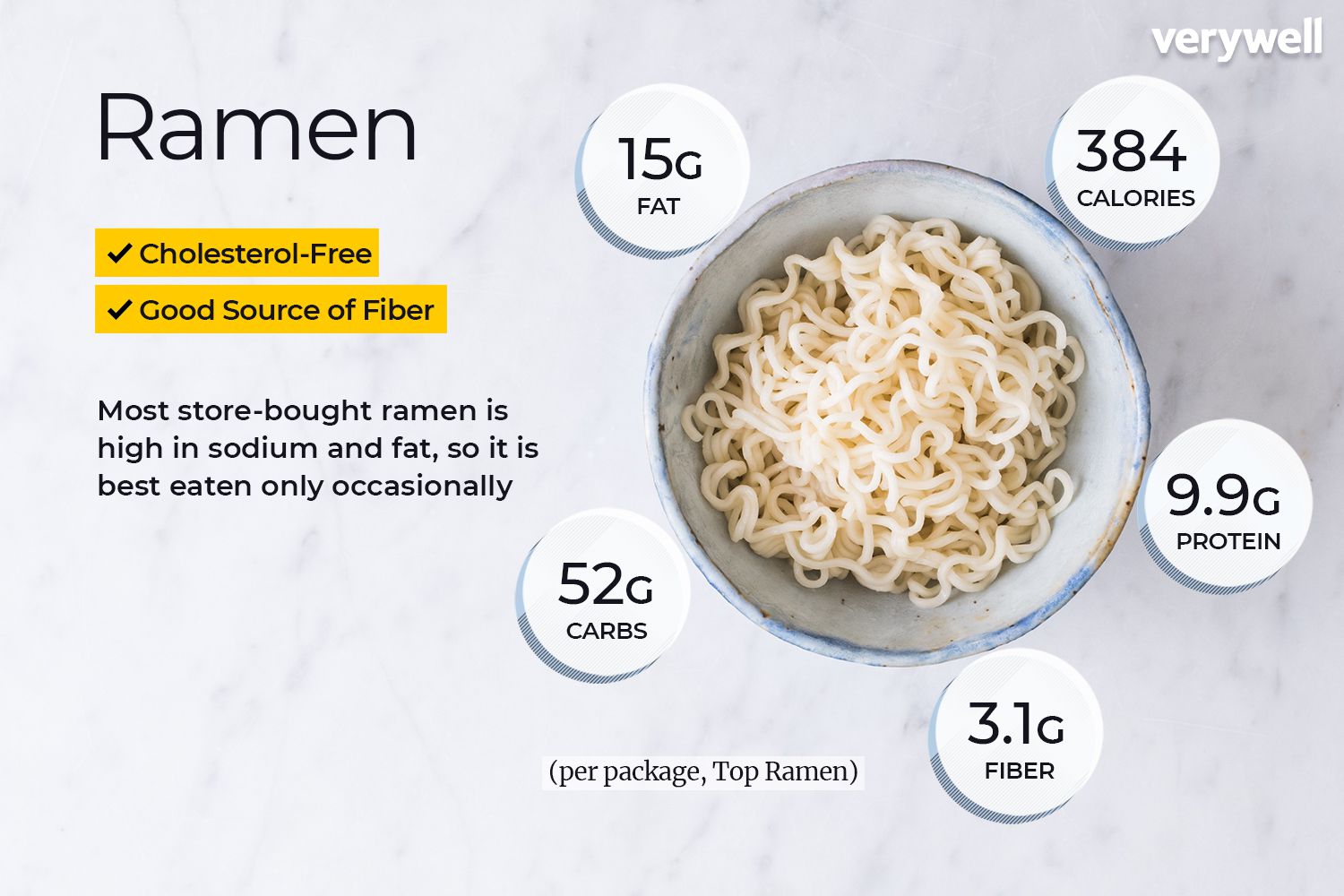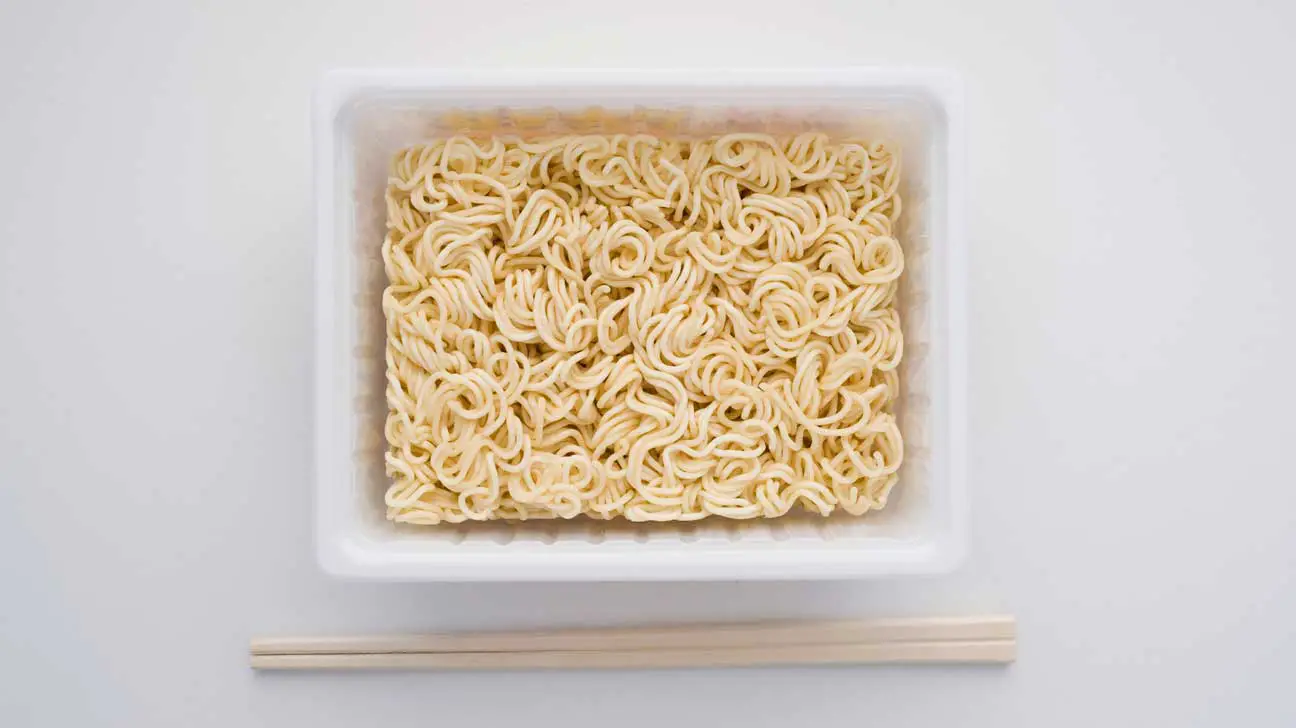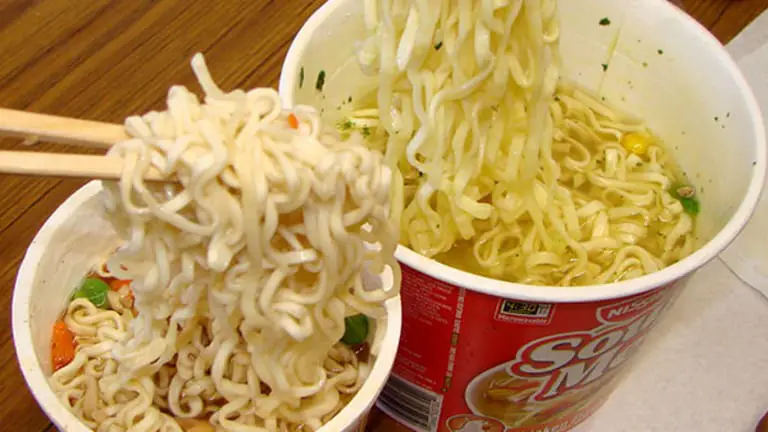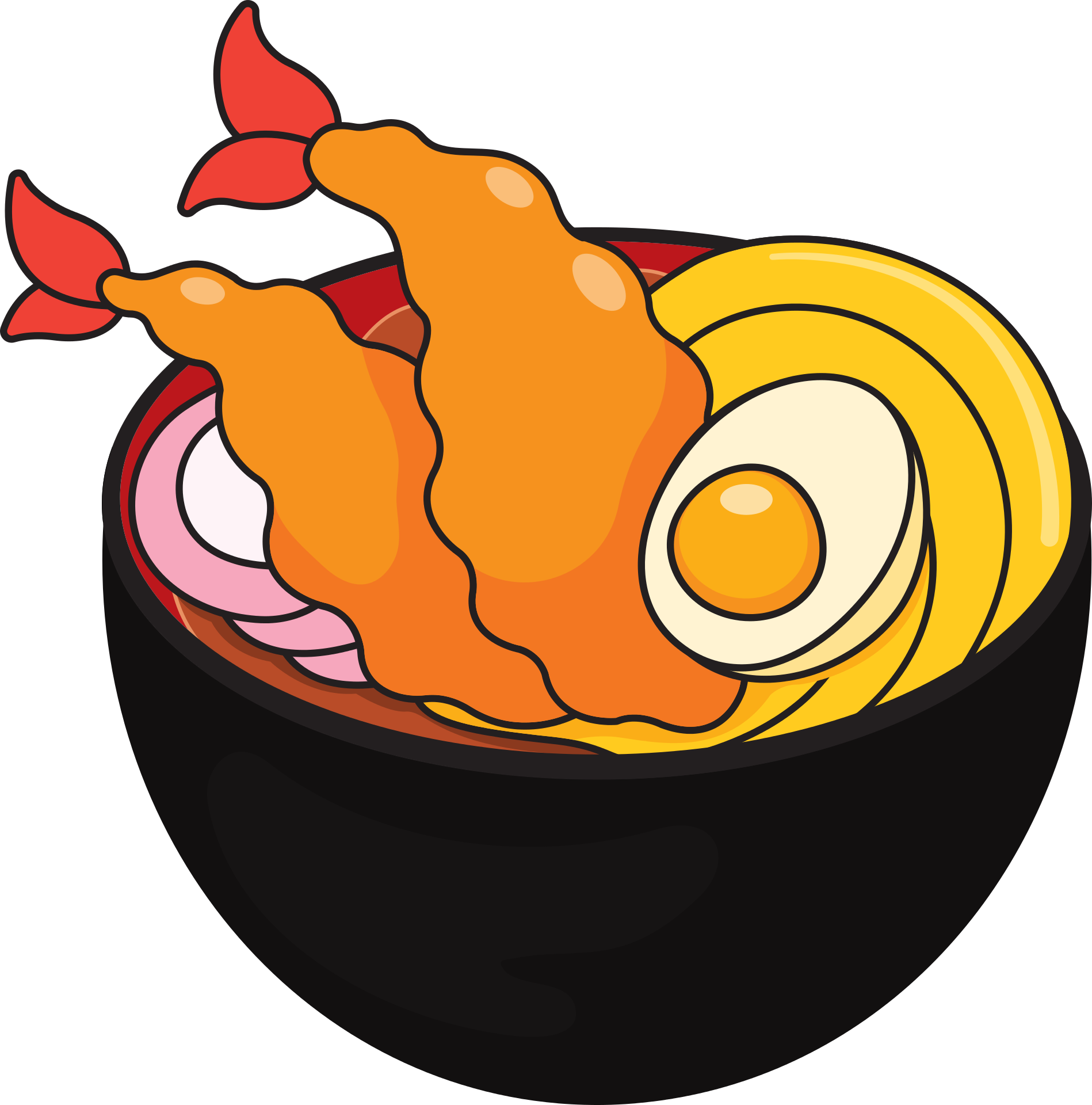Is Ramen Bad For You? Find Out
Sometimes you don’t feel like cooking anything special that takes time. In that case, thinking Is Ramen bad for you or not is quite apparent. Let’s face it- ramen instant noodles are something we always keep handy in the kitchen.
Ramen noodles are a kind of instant noodle relished by many around the globe. The main reason- is because they are affordable and only need a few minutes to cook. They are highly appealing to anyone on a low budget or running short on time.
Although instant ramen noodles might be suitable to cook, there’s perplexity as to whether Is ramen bad for you or healthy to eat daily.
This article takes an authentic look at ramen instant noodles to help you determine whether this timely dish can fit into a nutritious diet.
Is Ramen Bad For You Or Not? Find out
After reading or hearing two or three times about instant noodles, you may wonder is ramen bad for you or good. Well, a few things can help you confirm Is ramen bad for you. Keep scrolling:
1. Nutrition Levels of ramen instant noodles

Ramen noodles fall into packaged food category, and they are an instant type of noodle prepared from wheat flour, mixed vegetable oils, and spices. The instant noodles are pre-cooked, suggesting they have been boiled and then either air-dried or fried to lessen the time needed for cooking for consumers.
Instant ramen noodles are marketed in packages with a bit of seasoning packet or cups to which you add water and then microwave. Cooking instant ramen noodles includes putting the noodles into a cooking pot of seasoned boiling water. The instant noodles can also be boiled or cooked using a microwave, so they are usually a staple food for college-going students residing in dormitories.
There’s no doubt that these instant noodles are delicious and convenient. Still, their nutritional factors and value require closer examination for you to find out Is ramen bad for you or not.
Nutrition
Although nutritional data differs from product to product, most ramen instant noodles have fewer calories but are deprived of critical nutrients.
For instance, a single serving of chicken-flavored ramen instant noodles has:
- Calories are 188
- Carbs are 27 grams
- Total fat is 7 grams
- Protein is 5 grams
- Fiber is 1 gram
- Sodium is 891 mg
- Thiamine is 16 percent of the Reference Daily Intake (or RDI)
- Folate is 13 percent of the Reference Daily Intake
- Manganese is 10 percent of Reference Daily Intake
- Iron is 9 percent of the Reference Daily Intake
- Niacin is 9 percent of the Reference Daily Intake
- Riboflavin is 6 percent of the Reference Daily Intake
Instant ramen noodles are prepared using wheat flour that has been enhanced with synthetic forms of specific nutrient components like iron and vitamin B to give rise to more nutritious noodles.
Nevertheless, they are deprived of many valuable nutrients, such as protein, potassium, fiber, vitamin B12, vitamin C, vitamin A, calcium, and magnesium.
What’s further, unlike whole, fresh foods, processed and packaged foods such as ramen instant noodles fall short in phytochemicals and antioxidants that positively influence health in numerous ways.
Not to observe, they load in a reasonable amount of calories without the broad array of essential nutrients that a highly balanced meal containing protein, fibers, vegetables, and carbs would comprise.
Though a single serving (or 43 grams) of ramen instant noodles has merely 188 calories, most individuals eat a complete package, which is equal to two servings or 371 calories.
It should be reported that ramen instant noodles are distinct from raw and fresh ramen noodles, which are established Chinese and Japanese noodles generally eaten in soup form and finished with nourishing ingredients such as eggs, vegetables, and duck meat.
Let’s see another aspect that helps you determine Is ramen bad for you or healthy.
2. Loaded with Sodium

Sodium is an essential mineral that is important for the correct functioning of the body.
Nevertheless, excessive sodium in the diet from the abundance of salt is not promising for your health. One of the most significant contributors to sodium intake in your diet is purified or processed foods that comprise packaged diets such as ramen noodles.
Not intaking sufficient sodium has been associated with severe impacts, but obtaining in extremely much quantity can also negatively influence your health. For instance, consuming a diet high in sodium or salt has been associated with a boosted chance of stomach cancer, stroke, and heart disease.
Further, in particular, for people deemed salt sensitive, a diet rich in sodium might increase blood pressure, adversely influencing kidney and heart health.
However, there is an ongoing debate over the fact of the existing intake advice of two grams of salt per day set forward by the standards of the World Health Organization; it’s apparent that restricting foods that are incredibly high in sodium is best.
Ramen instant noodles are relatively elevated in sodium, with a single package comprising 1,760 milligrams of sodium, or 88 percent of the 2-gram proposal suggested by the world health organization.
Eating only one package of ramen instant noodles each day would make it incredibly difficult to maintain sodium intake near to the current dietary suggestions.
But as ramen instant noodles are inexpensive and easy to ready, it’s a simple food to depend on for people scraped for time.
For such a reason, numerous people may intake ramen noodles many times every day, leading to enormous amounts of consumed sodium.
3. Contains MSG and TBHQ

Like numerous ultra-processed foods, ramen instant noodles have components like taste enhancers and preservatives, which can be dangerous for your health. Tertiary butyl hydroquinone — now known as TBHQ — is a widespread element in ramen instant noodles.
It is a preservative utilized to expand shelf life and avoid spoiling ultra-processed foods. While TBHQ is deemed safe in tiny doses, a few animal surveys have indicated that continual exposure to TBHQ might cause neurological harm, boost the danger of lymphoma and lead to liver enlargement.
Besides, a few people, when exposed to TBHQ, have encountered vision disruptions, and test-tube surveys have indicated that this particular preservative can harm DNA.
One more dubious element discovered in most categories of ramen instant noodles is monosodium glutamate (MSG).
It is another additive employed to enrich the spice of savory foods and make them more delicious.
Certain people might be extra susceptible to MSG than others. Intake of MSG preservative has been associated with signs such as headaches, sickness, high blood pressure, tiredness or weakness, muscle tightness, and skin flushing.
Although these components have been associated with numerous adverse health effects in vast doses, the minor amounts in food are considered safe in restraint amounts.
However, those who are extremely sensitive to different additives such as MSG might need to remain clear of ramen instant noodles, as well as other highly processed foods.
Now that you know enough about- Is ramen bad for you or not let’s see more questions related to it.
Is ramen noodles bad for you, or should you avoid ramen noodles?

Although instant ramen noodles sometimes will not damage your health, everyday consumption has been associated with worse overall diet quality and numerous severe health effects.
A survey in 6,440 Korean grown-ups established that those who ate instant noodles every day had lower consumption of protein, iron, phosphorus, potassium, calcium, niacin, and vitamins A and C than those who did not eat this food.
Plus, those who repeatedly consumed instant noodles ate considerably fewer fruits, vegetables, nuts, seeds, fish, and meat.
Average instant noodle intake has also been linked with a heightened danger of the metabolic disorder, a group of warnings comprising excess abdominal fat, high blood sugar, high blood pressure, and abnormal blood lipid degrees or levels.
Consequently, it is most suitable to limit your consumption of ramen instant noodles and not utilize them as a meal alternative daily.
Now that you have understood everything on the subject- Is ramen bad for you or Not. Let’s see how you can use it to make it healthier and tastier.
How to Make Ramen Noodles Healthier

For people who admire consuming instant ramen noodles, there are numerous ways to prepare this easy dish more wholesome.
One of the easiest ways to taste up your ramen noodles is to break a raw egg into the heated broth for receiving a Poached faux outcome. Crack open the egg in only after you have taken the pot off the stove heat (you must have already blended in the spice packet that comes along ramen), cover, and allow it to sit for approximately a minute. This generates a more ethereal white color than a poached egg and mixes the broth with the yolk. As somebody unable to make a real poached egg, this procedure is incredibly achievable and absurdly decent.
Add more eggs
If the poached procedure is not performing well for you, there are enough different ways to obtain some excess protein in the instant ramen:
Blend a beaten egg inside the broth for an egg dip soup impact. Top the finished bowl using a fried egg. Snuggle a soft-boiled egg atop the ramen noodles (hard-boiled also works well).
Add cheese
Do yourself this favor: Take one sheet from Roy Choi’s ramen edition and swirl two slices of American cheese into the done broth. The cheese melts to give the ramen a fantastic creaminess, and you will slurp this soup up, admiring it and thinking where it’s been all this time.
Add veggies
Ramen noodles are the ideal excuse to clean out the crisper without planning a complicated meal. Toss in any product you have right now green onions, broccoli, bean sprouts, spinach, sliced jalapeños, bok choy — and then feel satisfied with all the nutritional elements added to the bowl. A few frozen veggies, such as peas or shelled edamame, is one mode easy means to reap some green in.
Add herbs
While ramen instant noodles are an inexpensive carbohydrate source, there are numerous other wholesome, affordable carb choices out there.
Add spice
If you choose to sweat when you consume your instant ramen, try dodging away from regular vinegary Tabasco and having one of these to the pot instead.
- Sriracha: The old standby having rooster on the bootle — tangy and got with a clue of garlic.
- Gochujang: The famous Korean fermented chili in the form of a paste has been busy unseating Sriracha as a favorite flavorful sauce — combines tons of depth with a salty, sweet kick.
- Sambal oelek: This Indonesian chili paste prepared using crushed red peppers — provides your dish a fresh, raw spiciness.
- Red curry paste: This popular Thai seasoning is instilled with aromatic flavorings — flavors your broth with the chef-d’oeuvre curry taste.
Brown rice, potatoes, and oats are examples of unique, versatile, cheap carbs for people looking to save some money.
Add coconut milk
Besides the outstanding American cheese hack, one more means to add silkiness to instant ramen is using coconut milk. Go with the entire fat sort for maximum effect, and stir it into the completed broth till your craved level of creaminess is attained.
Add protein
A packet of ramen does not comprise much protein, so mixing some of your own will enable you to turn your unhealthy bowl into a wholesome meal. Keep things modest—try adding canned beans, cooked shrimp, or frozen edamame. Extra cooked chicken or tofu works tremendously well, Too. And don’t ignore eggs, one of our most Preferred convenient proteins.
Is Ramen Bad For You? The Bottom Line
Though instant noodles grant essential minerals like iron, vitamin B, and manganese, they do not provide fiber, protein, and additional significant vitamins and minerals.
Besides, their MSG, high sodium contents, and TBHQ might affect health negatively by improving the risk of metabolic syndrome, heart disease, and stomach cancer.
Curbing intake of refined foods such as instant ramen noodles and consuming great a whole, unprocessed foods is constantly the best option for your fitness and overall health.
That was everything about- Is ramen bad for you or healthy with extra tips to make it healthier.

